MercoPress. South Atlantic News Agency
Tag: Federal Reserve
-
Tuesday, October 8th 2013 - 06:29 UTC
US Fed issues the new hi-tech 100 dollar bill with 3D security ribbon
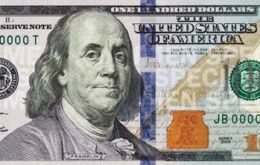
The US Federal Reserve has issued a new hi-tech 100 dollar banknote comprising several new security features. It includes a blue 3D security ribbon and a bell and inkwell logo that authorities say are particularly difficult to replicate.
-
Thursday, September 26th 2013 - 22:43 UTC
Argentina appeals Judge Griesa ruling stating central bank reserves are ‘seizable’ for certain purposes
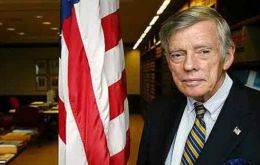
New York Judge Thomas Griesa has ruled against Argentina's request to dismiss a lawsuit over the Central Bank (BCRA) reserves, which if upheld could allow holdout creditors to seize assets belonging to the country.
-
Friday, September 20th 2013 - 07:58 UTC
IMF sides with Obama calls on Republicans to bury political differences
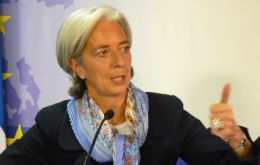
The International Monetary Fund urged US policymakers to support major reforms at the global lender and bury political differences over the budget to ease one source of risk to the economy and markets.
-
Friday, September 20th 2013 - 07:36 UTC
Brazil’s Mantega becomes supporter of US stimulus and praises Fed’ last decision
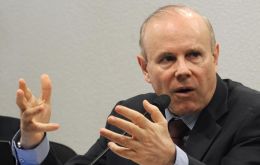
Brazilian Finance Minister Guido Mantega, on Wednesday cheered the Federal Reserve's decision to leave stimulus unchanged, saying it may signal an end to market turmoil. Mantega, who gained international fame for using the term “currency wars” to describe rich nations’ efforts to lift exports by weakening their currencies, said a gradual stimulus withdrawal may boost Latin America's largest economy.
-
Wednesday, September 18th 2013 - 20:33 UTC
Fed decides to keep stimulus: fears of economy sluggishness and still slow labour market

In a surprise move after a two-day meeting the US Federal Reserve said on Wednesday that it would continue buying bonds at a rate of 85 billion dollars monthly and expressed concern that a sharp rise in borrowing costs in recent months could weigh on the economy.
-
Thursday, September 5th 2013 - 01:59 UTC
Advanced economies taking the global relay from emerging countries, says IMF

Advanced economies led by the United States will increasingly drive global growth while emerging countries are at risk of slowing due to tighter US monetary policy, the IMF said in a note according to Reuters news agency.
-
Wednesday, July 24th 2013 - 06:56 UTC
Fed expected to trim bond buying to 65bn in September, says Bloomberg survey

Federal Reserve Chairman Ben S. Bernanke in September will trim the Fed’s monthly bond buying to 65 billion from the current pace of 85 billion dollars, according to a growing number of economists surveyed by Bloomberg News.
-
Monday, July 22nd 2013 - 06:17 UTC
G20 ministers and bankers pledged to put growth before austerity
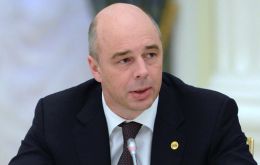
The Group of 20 nations pledged to put growth before austerity, seeking to revive a global economy that “remains too weak” and adjusting stimulus policies with care so that recovery is not derailed by volatile financial markets.
-
Wednesday, July 17th 2013 - 22:12 UTC
Fed says asset purchases will remains above all flexible to market conditions

Federal Reserve Chairman Ben Bernanke said on Wednesday the US central bank still expects to start scaling back its massive asset purchase program later this year but left open the option of changing that plan in either direction if the economic outlook shifted.
-
Saturday, July 6th 2013 - 06:44 UTC
US economy adds more jobs than forecasted; markets looking at the Fed’s reaction

The US economy added a net 195,000 new jobs in June, official figures show. The figure was well above economists' expectations of 165,000. Revisions to data for April and May added a further 70,000 jobs to previous estimates. This means the jobless rate remained steady at 7.6% of the workforce, according to data from the Bureau of Labour Statistics.
